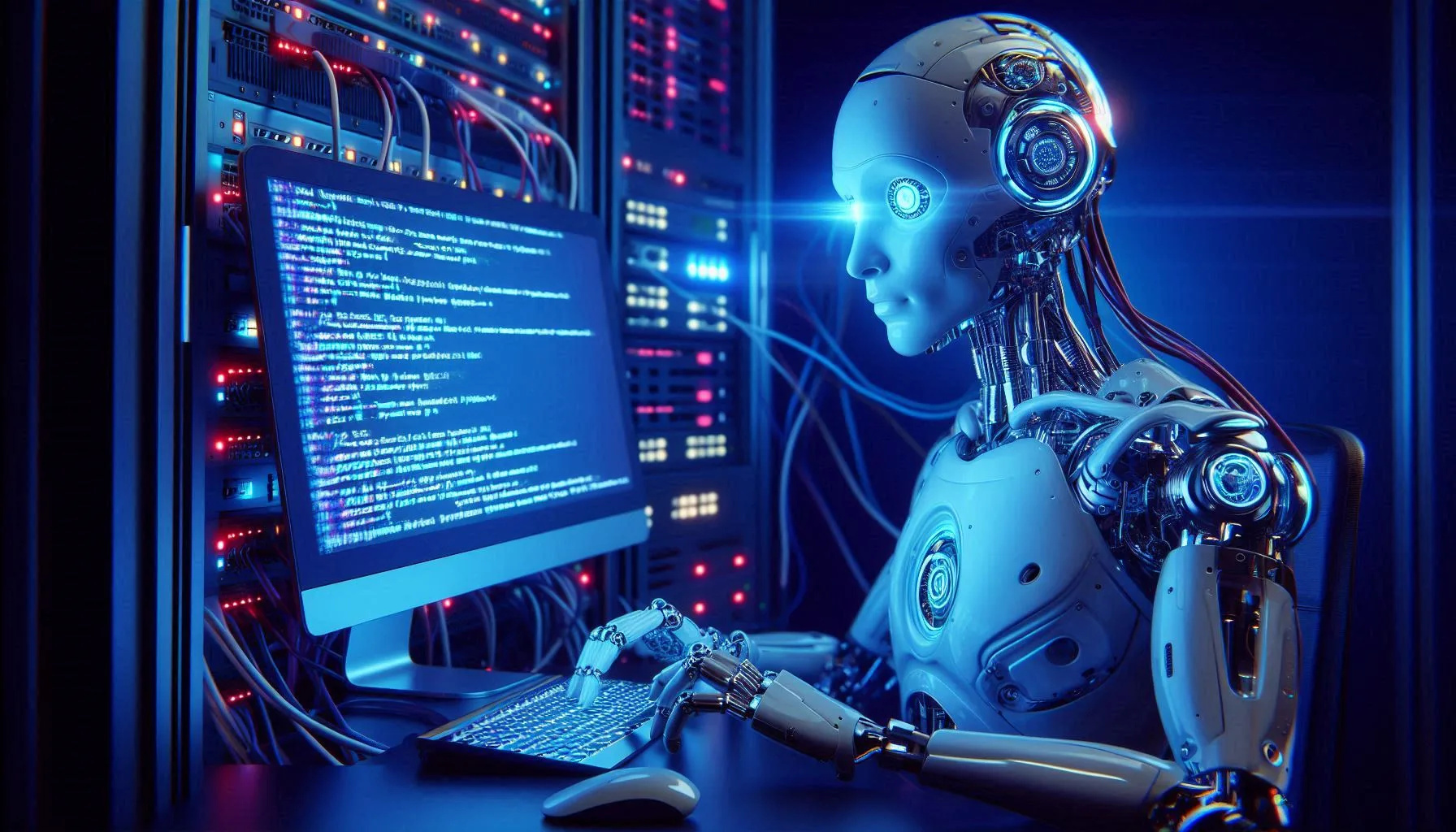Artificial Intelligence transforms security systems across homes, businesses, and public spaces. The technology brings unprecedented capabilities to detect threats, prevent incidents, and respond to security breaches. Let’s explore how AI reshapes security today and what the future holds.
Current AI Applications in Security
Smart Video Surveillance
AI-powered cameras now detect suspicious activities instantly. These systems spot unusual behavior patterns in crowds. They identify weapons, abandoned objects, and unauthorized access attempts. Modern security cameras learn normal activity patterns for each location. This helps them flag real threats while reducing false alarms.
Security teams benefit from AI-enhanced monitoring. The technology handles routine observation tasks. This lets human guards focus on critical decision-making and emergency response. AI never gets tired or distracted. It watches every corner 24/7 with consistent attention.
Access Control Systems
Traditional key cards and passwords have limitations. AI brings stronger security through face recognition and behavioral analysis. Modern systems check multiple factors before granting access. They verify your face, walking pattern, and typing rhythm.
The technology adapts to authorized users’ habits. It spots unusual access patterns quickly. If someone tries to enter outside their normal schedule, the system raises alerts. This stops intruders from using stolen credentials.
Threat Detection and Prevention
AI analyzes security data from multiple sources. It finds patterns humans might miss. The systems process information from:
- Security cameras
- Door sensors
- Motion detectors
- Network traffic
- Access logs
This comprehensive analysis helps predict potential threats. Security teams can act before incidents occur. The technology reduces response times and prevents damages.
Network Security
AI strengthens cybersecurity defenses. It spots network attacks faster than traditional tools. The systems learn normal network behavior patterns. This helps them identify suspicious activities quickly.
Modern security tools use AI to:
- Block malicious traffic
- Detect system vulnerabilities
- Stop data breaches
- Prevent unauthorized access
- Filter spam and phishing attempts
Future Developments
Predictive Security
Future AI systems will predict threats with greater accuracy. They’ll analyze historical data and current patterns. This helps security teams prepare for potential incidents. The technology will:
- Forecast high-risk periods
- Identify vulnerable areas
- Suggest preventive measures
- Optimize security resource allocation
Advanced Biometric Systems
Tomorrow’s access control will use more sophisticated biometrics. Systems will combine multiple identification methods:
- DNA recognition
- Heart rhythm patterns
- Voice analysis
- Gesture recognition
- Brain wave scanning
These methods make identity theft nearly impossible. Each person’s biological patterns create unique signatures.
Autonomous Security Robots
AI-powered robots will patrol properties alongside human guards. These machines will:
- Monitor restricted areas
- Respond to alarms
- Guide visitors
- Report incidents
- Collect evidence
The robots will work seamlessly with other security systems. They’ll provide mobile surveillance and quick response capabilities.
Smart Building Integration
Future security systems will integrate deeply with building infrastructure. AI will control:
- Lighting systems
- HVAC controls
- Door locks
- Elevator access
- Emergency systems
This integration enables faster incident response. Buildings will automatically adjust to security threats.
Benefits for Different Users
Home Users
AI security brings peace of mind to homeowners. The systems offer:
- Easy smartphone control
- Automatic threat alerts
- Family member recognition
- Pet-friendly monitoring
- Energy-saving features
These benefits make advanced security accessible for homes. Users don’t need technical knowledge to operate the systems.
Business Users
Companies gain stronger protection through AI security. The technology provides:
- Employee productivity insights
- Inventory protection
- Customer behavior analysis
- Regulatory compliance
- Cost reduction
Business owners can better protect assets and people. The systems scale easily for growing operations.
Security Professionals
AI tools help security teams work smarter. The technology offers:
- Automated routine tasks
- Better threat detection
- Faster response times
- Reduced false alarms
- Evidence collection
Guards and operators focus on high-value security tasks. This improves overall security effectiveness.
Implementation Challenges
Privacy Concerns
AI security systems collect sensitive data. Organizations must:
- Protect personal information
- Follow privacy laws
- Inform users about data collection
- Secure stored data
- Delete unnecessary information
Clear policies help address privacy concerns. Users need control over their personal data.
Technical Requirements
Implementing AI security demands proper infrastructure. Organizations need:
- High-speed networks
- Sufficient storage
- Processing power
- Regular updates
- Technical support
Planning helps avoid implementation problems. Organizations should assess their capabilities first.
Training Needs
Staff must learn to use AI security systems. Training should cover:
- Basic operation
- Threat response
- System maintenance
- Privacy protection
- Emergency procedures
Regular training updates keep skills current. This ensures effective system use.
Best Practices
System Selection
Choose AI security systems carefully. Consider these factors:
- Security needs
- Budget limits
- Technical capabilities
- User requirements
- Growth plans
Proper selection ensures long-term success. Systems should match organization needs.
Implementation Steps
Follow a structured implementation approach:
- Plan thoroughly
- Test extensively
- Train users
- Monitor performance
- Adjust settings
Take time to implement systems properly. Rush jobs often cause problems later.
Maintenance Requirements
Keep AI security systems running smoothly:
- Update software regularly
- Check hardware condition
- Clean sensors
- Test functions
- Document changes
Good maintenance prevents security gaps. It also extends system life.
Looking Ahead
AI continues transforming security systems. Future developments will bring:
- Better threat detection
- Stronger access control
- Smarter automation
- Deeper integration
- Lower costs
Organizations should prepare for these changes. Early adoption brings competitive advantages.
Stay informed about AI security developments. The field changes quickly. New technologies emerge regularly. Understanding trends helps make better security decisions.
Remember these key points:
- AI enhances human capabilities
- Privacy matters greatly
- Training ensures success
- Maintenance prevents problems
- Changes bring opportunities
AI security systems protect people and assets better. They make security more effective and efficient. The technology helps create safer spaces for everyone.
Conclusion
AI revolutionizes security in unprecedented ways. Today’s systems protect homes, businesses, and public spaces with remarkable efficiency. They combine smart surveillance, advanced access control, and predictive capabilities. These technologies work together to create stronger security environments.
The future promises even more exciting developments. We’ll see better threat prediction, sophisticated biometrics, and autonomous security robots. These advances will make security systems more effective and user-friendly. Organizations that embrace AI security gain significant advantages.
Remember these essential takeaways:
- AI enhances security without replacing human judgment
- The technology keeps improving rapidly
- Privacy and proper implementation matter greatly
- Regular updates and maintenance ensure optimal performance
- The benefits far outweigh the challenges
As AI technology advances, security systems will become smarter, more reliable, and more accessible. Organizations of all sizes can benefit from these improvements. The key lies in careful planning, proper implementation, and ongoing adaptation to new developments.
Make informed decisions about AI security adoption. Consider your specific needs and capabilities. Start with basic systems if needed. Expand as your understanding and requirements grow. The journey toward better security through AI starts with a single step.
The future of security is here. AI-powered systems protect people and assets better than ever before. They create safer spaces for everyone. By understanding and embracing these technologies, we build a more secure future together.




